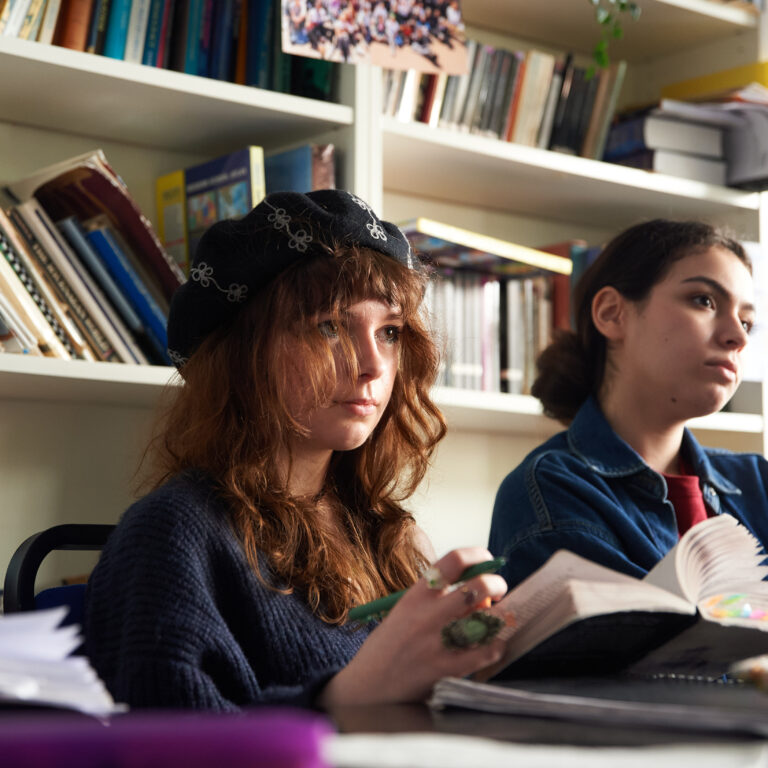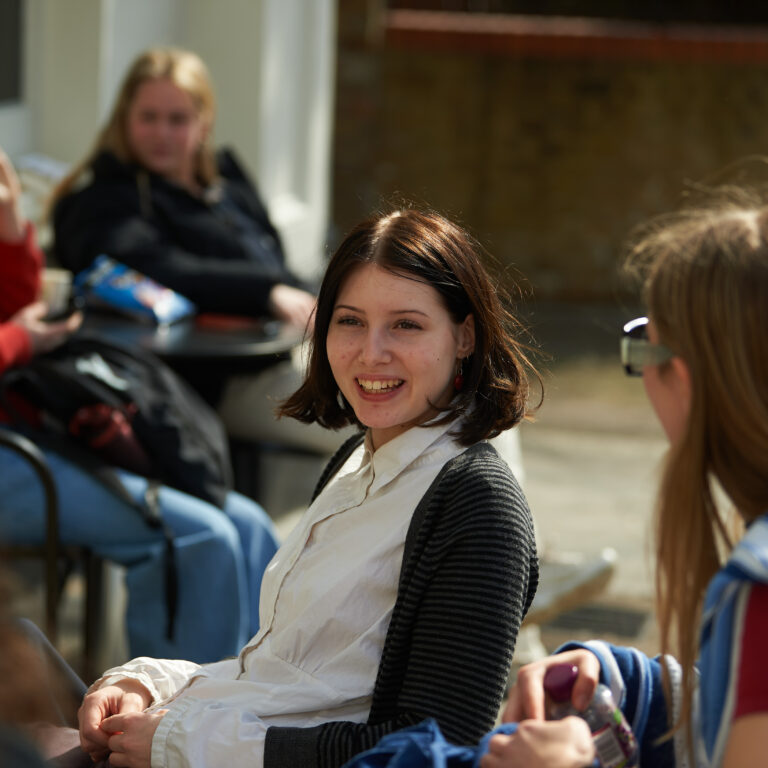From the Good Schools Guide:
Principal Candida Cave (aka Candy, this is a first name-terms school) clearly exudes the same art school elegance that she did when she founded the college with fellow artist Nicholas Cochrane in 1978: stylish, eccentric, with a timeless trademark bob. After studying painting at the Ruskin, she taught History of Art and loved it. On the morning we visited, she had delivered an assembly on two abstract Rothko paintings and that evening was giving a gallery tour to adults, including parents, of the early modern collection at Tate Britain. ‘Learning is ongoing,’ she says, ‘and it is important that our students realise that it is a lifelong process.’
She has now handed over the day-to-day running of the school to her daughter Emmy, but is still the outward face of the school, ensuring that the essential founding ethos remains unchanged: to instil a love of learning, especially of the arts, in her students. Sceptical of exam re-marks and retakes, she sees the qualification as the least interesting part of the process. ‘We see students as having great possibilities; it’s about helping them achieve their potential in the most positive way, and this includes helping them get into wherever they want to go.’ She is proud of her students, as evidenced by the impressive artwork in her study, all home-grown. ‘She really wanted the best outcome for us and was endlessly supportive,’ enthuses one appreciative student.
Emmy Schwieters, appointed head in 2018, was born into the FAC cradle. Inspired by her mother’s history of art lessons, she studied English and History of Art at Leeds, and still teaches the subject to Sixth Form. The mother–daughter relationship, she tells us, thrives on honest, constructive conversations and absolute clarity around each role. She is warm and approachable and, we are confidently assured by parents, very responsive to any concern. As the mother of two children approaching their teenage years, she knows how to talk to young people in an engaging way, while making it clear that she is in charge. She knows the students very well, nurturing rather than indulging, and they take comfort in this.
A wide range of subjects is now offered at both GCSE and A-level, although the school continues to enjoy a reputation as a specialist arts college. At A-level it is possible to combine a group of similar creative subjects: say, performing arts, dance, drama and music, or art and design with fine art, graphic design, photography, and fashion/textiles. The arts subjects are mainly taught by practising artists, actors, and musicians, which creates a sense of relevance in this creative environment. Some members of staff are alumnae themselves (we sometimes failed to distinguish the younger ones from their students) and ranging in age from their twenties to seventies, we were told of the collegiate atmosphere amongst staff; many find it hard to leave.
Established as a specialist sixth form arts college nearly 45 years ago, the overall flavour remains distinctly artsy. Art is simply everywhere, including in the loo, where a print of Velázquez’ Rokeby Venus is the antidote to contemporary vaping packaging. The founding ethos ‘which remains embedded in the school,’ says the head, was to create a school that the founders themselves would have liked to attend. The school is now owned and governed by Dukes Education, the founder of which wanted to give students the chance ‘to be successful in the face of obstacles’. Not all students have encountered obstacles, but there is no doubt that many of them felt constraints in their previous school and respond well to the more liberal approach to learning. They can ‘quietly be themselves’ and discover, in their own time, their individual interests and talents.
Most students feel instantly liberated by the relaxed atmosphere engendered by hugs, headphones, and hoodies. So grateful not to have to conform to traditional norms, they discover a new motivation to learn: ‘it’s a very different atmosphere to other schools;’ ‘it’s very freeing;’ ‘everyone is valued.’ Their parents’ relief at finding a school which not only accepts them but also suits them is equally palpable. They talk of mutual respect and say that their offspring are at last happy. ’This place has changed my life,’ says one satisfied student; the same could be said by many a parent.
Click here to read the full review.



